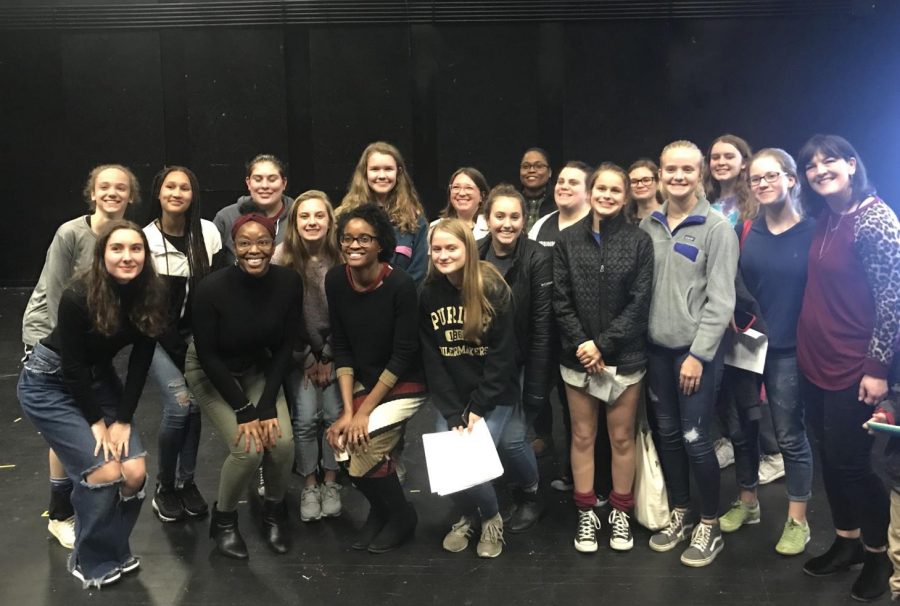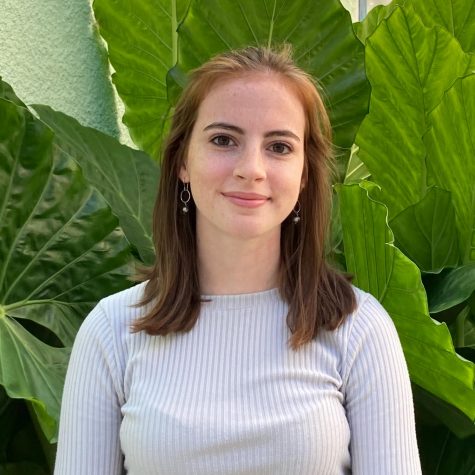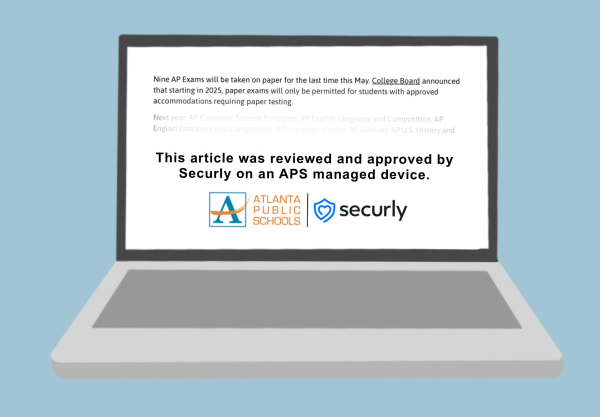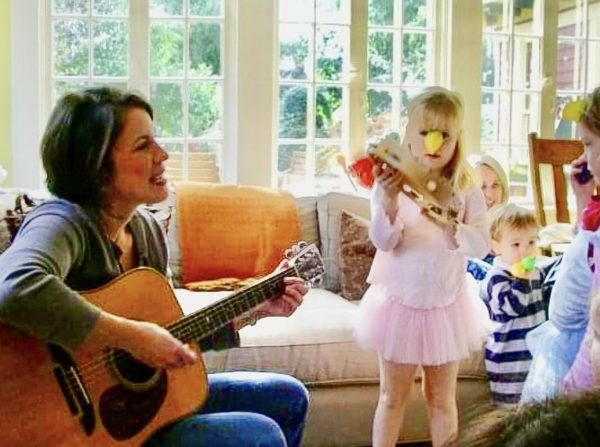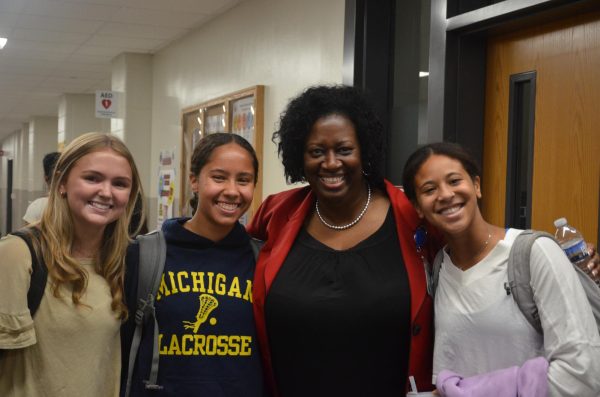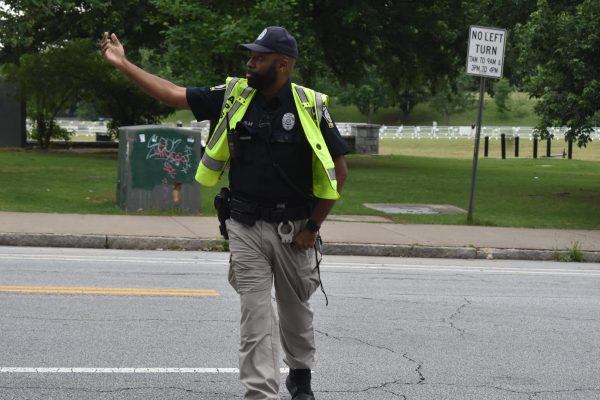500 Women Scientists seek reproductive justice
Grady students and featured speakers pose after the session. 500 Women Scientists members were encouraged to write letters to representatives at a future meeting.
February 15, 2020
Reproductive health, justice and women’s rights were at the center of a recent summit by Grady’s 500 Women Scientists club and the national organization’s Atlanta unit.
Attendees discussed consent, pregnancy, contraception, abortion, gender identity and sexual orientation, at the Feb. 10 seminar in Grady’s Black Box Theater.
“It’s one thing to say that people should have a choice about what to do with their bodies … It’s another thing to say that people should have access,” said the discussion’s leader, Jalessah Jackson, a Kennesaw State University professor and social justice consultant. “RJ (Reproductive Justice) is centered in understanding the intersections of people’s lives that impact their access.”
Large sticky notes labeled “consent,” “fertility and pregnancy,” “contraception,” “pregnancy and abortion options,” “gender identity,” and “sexual orientation” were posted to a wall in the theater.
The purpose of the discussion was to have an intergenerational panel, organized by both the Atlanta and Grady 500 Women Scientists organizations, where teenagers could discuss divisive issues with their elders.
“The goal of this event is to empower and build capacity for the youth to engage in effective, inclusive, science-based advocacy for reproductive rights, as well as to feel confident and comfortable talking about these issues with their parents,” said Dr. Nicole Baran, the executive coordinator of the Atlanta 500 Women Scientists and a researcher at Emory University’s Department of Psychology.
Gov. Brian Kemp’s signing of the “Heartbeat Bill” in May 2019 sparked the event. The bill would prohibit abortion in Georgia after the detection of a fetal heartbeat, usually after six weeks.
“The data demonstrates that abortion bans do not stop abortions,” Baran said. “Instead, these bans will disproportionately harm … people of color, members of the LGBTQ+ community, people in poverty and victims of domestic and intimate partner violence. Teenagers are also disproportionately affected by abortion bans, and young activists are often at the forefront of the movement to expand reproductive freedoms and abortion access.”
After Jackson’s reproductive justice discussion and an explanation of the implications of the “Heartbeat Bill” by Dr. Dabney Evans, Emory University’s Center of Humanitarian Emergencies director, attendees were encouraged to write letters to their representatives about reproductive justice issues and legislation they deemed pertinent.
Senior Katherine Esterl is the co-president of Grady’s 500 Women Scientists club and assisted the Atlanta group in organizing the event. Esterl, who is also a Southerner Co-Editor-in-Chief, believes the discussion is important for teenagers because they will have a place to talk about their reproductive rights.
“[The purpose is to] start a conversation about something that might be uncomfortable for some people … and just talking about that this is a part of life; this is important; this is affecting people and women who are a minority,” Esterl said. “It’s important to talk about it and feel comfortable talking about it and make change … fix the things that are wrong.”

